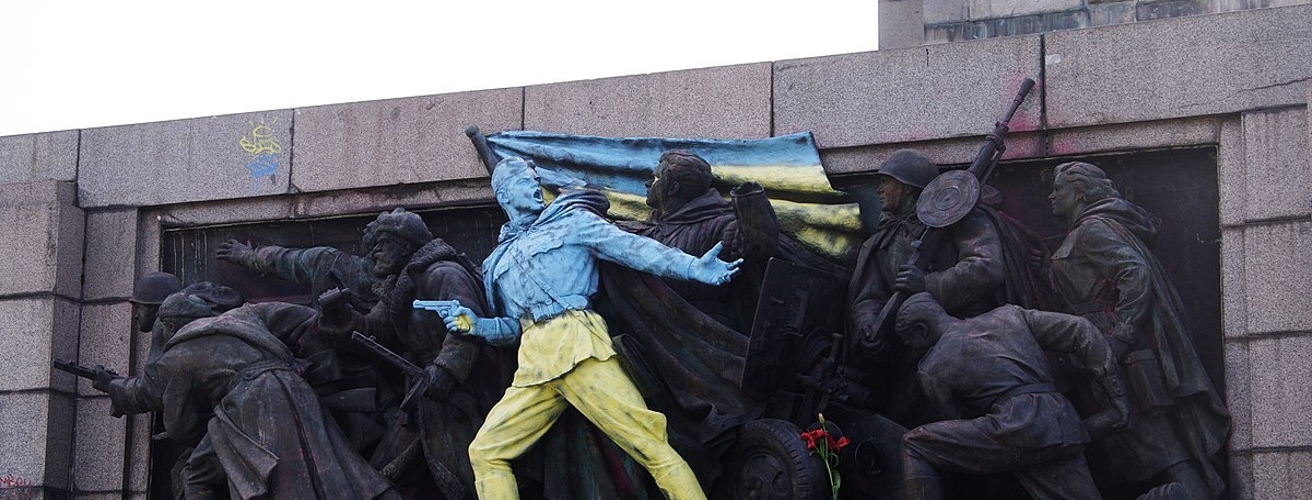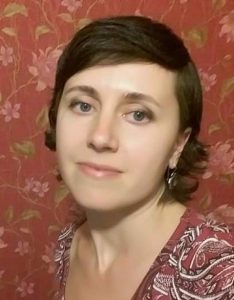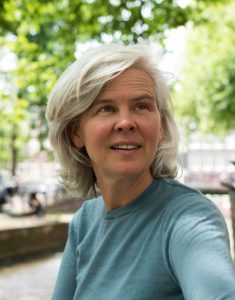 November 30, 2022
Lecture
November 30, 2022
Lecture
 University of Amsterdam | BG 3 | Binnengasthuisstraat 9
1012 ZA Amsterdam
University of Amsterdam | BG 3 | Binnengasthuisstraat 9
1012 ZA AmsterdamEastsplainers #1: Language

For this opening of the public lecture series Eastsplainers, we welcome Ukrainian linguist Oksana Kononchuk.
How do language politics work? How do conflicts relate to the ways in which we talk and write? And what happens to a language when it is subjected to the form of violent language extermination that we call linguicide – the linguistic equivalent of genocide?
Our speaker, linguist Oksana Kononchuk, had to leave Kyiv and her university because of the Russian war in Ukraine. She is currently guest researcher at the University of Amsterdam’s department for Russian and Slavic Studies and connected to the Amsterdam Centre for Language and Cognition. During this lecture, she will share her insights on words, war, and worldmaking and -breaking. Renowned Dutch linguist Nicoline van der Sijs (Radboud University) will serve as moderator. Ellen Rutten (professor of Russian and Slavic Studies, University of Amsterdam) will start off the lecture with a short introduction to the lecture series as a whole.

Oksana Kononchuk
Oksana Kononchuk was educated in two fields: in 2002 she graduated in Persian Language and Literature at the Taras Shevchenko National University of Kyiv’s Department of Oriental Studies. In 2010, she graduated from the Faculty of Theory and History of Fine Arts of the National Academy of Fine Arts and Architecture of Ukraine. In 2007, at Taras Shevchenko University’s Institute of Philology, Kononchuk defended her thesis research on Persian short stories of the 1920s-1940s – the first PhD research on Persian literature that was ever defended in Ukraine. She taught Persian language and literature at Taras Shevchenko National University (Kyiv). In 2022, she fled to Amsterdam, where she is currently a guest researcher a the University of Amsterdam’s Department of Russian and Slavic Studies.

Nicoline van der Sijs
Nicoline van der Sijs studied Slavic Languages and Literatures in Utrecht. Currently she is senior researcher at the Institute for the Dutch Language in Leiden and emeritus professor of historical linguistics of Dutch at the Radboud University, Nijmegen. She is specialized in historical linguistics and etymology. She set up a number of large databases with etymological information, such as the Etymologiebank.nl and the Uitleenwoordenbank, and she was projectleader of the Transcriptor, a tool that automatically converts Ukrainian and Russian personal names and place names into the spelling that is customary or recommended for the Dutch language area.

Ellen Rutten
Ellen Rutten is Professor of Literature and of Russian & Slavic Studies at the University of Amsterdam, the Netherlands and editor-in-chief of the peer-reviewed journal Russian Literature. Her research interests include Russian & global contemporary literature, art, and (social) media. She is author of Sincerity after Communism (Yale UP 2017), Unattainable Bride Russia (Northwerstern UP, 2010) and co-editor of Memory, Media and Conflict (Routledge 2014) and Imperfections: Studies in Mistakes, Flaws, and Failures (Bloomsbury 2022, ed. Kelly/Kemper/Rutten), among other publications.
Lecture series
Which contemporary cultural and intellectual trends do they witness in various parts of Central & Eastern Europe today? And how can knowledge about these trends help us understand Europe better? We study these questions with two important caveats in mind. One: the unlawful Russian regime somehow affects artists, scholars, and thinkers across all of Central & Eastern Europe – but we shun equalisations of other localities with Ukraine, where a full-fledged Russian war creates acute and mass-scale suffering. Second: rather than amplifying views on various Central & Eastern European locations as a monolithic European ‘East,’ Eastsplainers aims to unsettle these views. These locations may have connected histories – but our lectures and discussions show that they merit independent study and careful attention to local dynamics.
In a series of public lectures, staff members of the universities of Amsterdam and Leiden interview and introduce scholars, journalists, artists, film makers, musicians, and other cultural and academic professionals. They enter into conversations with each other and the audience, and they showcase new music, films, and literary works.
Apart from solidifying public education about Central & Eastern Europe, the series is meant as a space to jointly halt and digest the ongoing disturbing news about the Russian war in Ukraine. The series is also aimed to consolidate diasporic networks and offer financial support to artists and intellectuals in need. Eastsplainers is an initiative of prof. dr. Ellen Rutten, co-organised by Mari Janssen and Suzanne Rademaker and is set up with support from the University of New Europe, Middle- and Eastern-European studies publisher Pegasus and the Amsterdam School for Cultural Analysis.
The lectures take place from 17:00 to 18:30 in VOX-POP, the creative space of the UvA’s Faculty of Humanities.